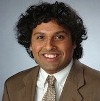Bottom-up welfare is the only way
- Details
During a visit to gain first-hand knowledge of the situation in the Telangana region, I asked the chief minister of Andhra Pradesh, Kiran Kumar Reddy, “What is the core purpose of politics?” He replied earnestly, “Politics is an opportunity to serve society.”
Armed with a litany of progressive schemes aimed at uplifting the girl child, succour for communities from the downtrodden Scheduled Castes (SCs) and Scheduled Tribes (STs), and raising all the other ‘vulnerable sections’, Reddy sees himself as a meaningful social engineer. Be it the deteriorating sex ratio, atrocities against women, youth unemployment or worsening food security, he speaks of a governmental lead role in chipping away at Andhra Pradesh’s social ills and problems.
Unlike flamboyant, larger-than-life chief ministers like Narendra Modi of Gujarat or Nitish Kumar of Bihar, Reddy keeps a low profile but is reflective about the larger goals of policymaking. In a one-on-one conversation to understand the relationship of government with marginalised citizens, I found Reddy hewing to the founding ideal of the Indian Republic, viz ‘reducing the differences in society’. The chief minister is placing faith in a fundamental vision of achieving socio-economic equality through democratic methods.
The notion of public welfare, which developmentalist politicians like Reddy swear by, is increasingly less top-down and more driven by the magic phrase — ‘feedback from the people’. Reddy always mentions in mass rallies how he uses his rural immersion tours to “seek advice” of community workers and village folk, and then devises the bespoke welfare schemes which define populism in India.
I spoke to tribal women from the villages of Medak district and heard echoes of greater participation of communities in deciding how to design or modify governmental social programmes. Often, government interventions in the name of economic development lack this feedback mechanism and end up fostering dependency or revolt. But peasants and tribals of Medak are arguing that Reddy’s initiative to legislate mandatory spending of earmarked funds to SCs and STs augurs well for empowerment. With greater financial autonomy and say in policies, they say, “no one can crush our dreams, as in the past.”
Two structural factors are working in favour of decentralisation and participatory politics in Andhra. The first is the mushrooming political competition among parties. The Congress is locked in a four-way contest for people’s loyalties with the YSR Congress, the Telugu Desam Party and a regional separatist party of Telangana. Greater competition among politics parties means that the onus on the incumbents to deliver goods and services is phenomenal. ‘Welfarism’ cannot guarantee poverty reduction or electoral success, but non-performance in a competitive political environment is suicidal.
The second reason for a frisson at the grassroots in Andhra about holding power wielders to account for fulfilling their promises is that federalism has taken deep roots in India’s body politic. Under Reddy’s reign, the state has not only drawn from the central government’s budgetary support for expanding its welfare pie, but also improved its own tax collection and revenue generation at the state level. These resources are being ploughed back into the developmental pipeline with a degree of local ownership and discretion over priorities in welfare.
Unlike in Brazil and Mexico, where federalism was observed to be a major obstacle to the efficient delivery of the welfare state’s functions, some Indian states are setting a different example of welfare federalism that works. The more development-oriented state governments in India wish to keep enlarging subsidies and social grants by building autonomous sources of financing for these programmes, to be managed at the state level. If Brazil’s pioneering ‘Bolsa Familia’ conditional cash transfer (CCT) scheme bypassed state governors to prevent dilution of central government goals, measures like Andhra’s own ‘Bangaaru Thalli’ (golden girl) CCT carry the state government’s distinct signature.
Kiran Kumar Reddy told me that he is bound to keep asking “what the people want” instead of imposing fake welfare on them. People will always have grievances, but when the state’s attitude is in tune with the spirit of citizenship, deeper democratisation is on the anvil.
 Dr. Sreeram Chaulia is Professor and Executive Director of the Centre for Global Governance and Policy (CGGP) at the Jindal School of International Affairs of O.P. Jindal Global University, India. This article originally appeared in Hindustan Times. Visit the author's website here.
Dr. Sreeram Chaulia is Professor and Executive Director of the Centre for Global Governance and Policy (CGGP) at the Jindal School of International Affairs of O.P. Jindal Global University, India. This article originally appeared in Hindustan Times. Visit the author's website here.

